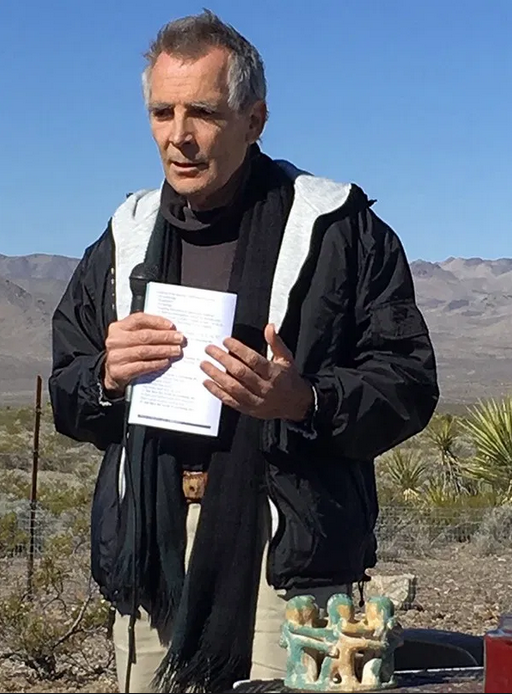This article originally appeared at
TomDispatch.com. To receive TomDispatch in your inbox three times a week,
click here.
In case you hadn’t noticed, the exploding coronavirus pandemic (we’re #1!) has taken a tad of our attention lately and the definition of “the future” has largely become: When will this be over?
Not surprisingly, then, much real news about our future planet has largely gone missing in action. Take, for example, a story that’s received next to no attention in this country, a report on the massive bleaching of Australia’s Great Barrier Reef this year thanks to record warming waters. Think of it as Australia’s oceanic equivalent of the staggering wildfires that burned through parts of that country in such an unprecedented fashion earlier in 2020. And coral reefs around the world, crucial to the life systems that rely on them (and that we humans rely on), are suffering similarly on a planet being transformed by human activity in ways large and small. Among those ways, none is worse than the burning of fossil fuels, still being promoted by governments run by arsonists like Donald Trump.
Almost nine years ago at this site, TomDispatch regular Michael Klare wrote what I now consider a prophetic piece, “The Planet Strikes Back.” In it, he focused on ways in which we humans have been inviting “the planet’s ire,” exploring in particular what was known then about the depredations of human-induced climate change. As he put it at the time, “We inhabit a new place, already changed dramatically by the intervention of humankind. But we are not acting upon a passive, impotent entity unable to defend itself against human transgression. Sad to say, we will learn to our dismay of the immense powers available to Earth, the Avenger.”
In the midst of the present global coronavirus pandemic, that old piece of his came to mind and I asked him to do a 2020 version of it. So take a deep breath, as so many of us sit here in self-isolation of one sort or another, and think with him about this moment, not to speak of similarly difficult moments to come, on a planet that is both endangered in radical ways and truly capable of striking back. Tom
Avenger Planet
Is the Covid-19 Pandemic Mother Nature’s Response to Human Transgression?
By Michael T. Klare
As the coronavirus sweeps across the planet, leaving death and mayhem in its wake, many theories are being expounded to explain its ferocity. One, widely circulated within right-wing conspiracy circles, is that it originated as a biological weapon developed at a secret Chinese military lab in the city of Wuhan that somehow (perhaps intentionally?) escaped into the civilian population. Although that “theory” has been thoroughly debunked, President Trump and his acolytes continue to call Covid-19 the China Virus, the Wuhan Virus, or even the “Kung Flu,” claiming its global spread was the result of an inept and secretive Chinese government response. Scientists, by and large, believe the virus originated in bats and was transmitted to humans by wildlife sold at a Wuhan seafood market. But perhaps there’s another far more ominous possibility to consider: that this is one of Mother Nature’s ways of resisting humanity’s assault on her essential life systems.
Let’s be clear: this pandemic is a world-shattering phenomenon of massive proportions. Not only has it infected hundreds of thousands of people across the planet, killing more than 40,000 of them, but it’s brought the global economy to a virtual stand-still, potentially crushing millions of businesses, large and small, while putting tens of millions, or possibly hundreds of millions, of people out of work. In the past, disasters of this magnitude have toppled empires, triggered mass rebellions, and caused widespread famine and starvation. This upheaval, too, will produce widespread misery and imperil the survival of numerous governments.
Understandably, our forebears came to view such calamities as manifestations of the fury of gods incensed by human disrespect for and mistreatment of their universe, the natural world. Today, educated people generally dismiss such notions, but scientists have recently been discovering that human impacts on the environment, especially the burning of fossil fuels, are producing feedback loops causing increasingly severe harm to communities across the globe, in the form of extreme storms, persistent droughts, massive wildfires, and recurring heat waves of an ever deadlier sort.
Climate scientists also speak of “singularities,” “non-linear events,” and “tipping points” — the sudden and irreversible collapse of vital ecological systems with far-ranging, highly destructive consequences for humanity. Evidence for such tipping points is growing — for example in the unexpectedly rapid melting of the Arctic icecap. In that context, a question naturally arises: Is the coronavirus a stand-alone event, independent of any other mega-trends, or does it represent some sort of catastrophic tipping point?
It will be some time before scientists can answer that question with any certainty. There are, however, good reasons to believe that this might be the case and, if so, perhaps it’s high time humanity reconsiders its relationship with nature.
Humans vs. Nature
It’s common to think of human history as an evolutionary process in which broad, long-studied trends like colonialism and post-colonialism have largely shaped human affairs. When sudden disruptions have occurred, they are usually attributed to, say, the collapse of a long-lasting dynasty or the rise of an ambitious new ruler. But the course of human affairs has also been altered — often in even more dramatic ways — by natural occurrences, ranging from prolonged droughts to catastrophic volcanic activity to (yes, of course) plagues and pandemics. The ancient Minoan civilization of the eastern Mediterranean, for example, is widely believed to have disintegrated following a powerful volcanic eruption on the island of Thera (now known as Santorini) in the 17th century BCE. Archaeological evidence further suggests that other once-thriving cultures were similarly undermined or even extinguished by natural disasters.
It’s hardly surprising that the survivors of such catastrophes often attributed their misfortunes to the anger of various gods over human excesses and depredations. In the ancient world, sacrifices — even human ones — were considered a necessity to appease such angry spirits. At the onset of the Trojan War, for example, the Greek goddess Artemis, protectress of wild animals, the wilderness, and the moon, stilled the winds needed to propel the Greek fleet to Troy because Agamemnon, its commander, had killed a sacred deer. To appease her and restore the essential winds, Agamemnon felt obliged — or so the poet Homer tells us — to sacrifice his own daughter Iphigenia (the plot line for many a Greek and modern tragedy).
In more recent times, educated people have generally seen coronavirus-style calamities as either inexplicable acts of God or as explicable, if surprising, natural events. With the Enlightenment and the Industrial Revolution in Europe, moreover, many influential thinkers came to believe that humans could use science and technology to overpower nature and so harness it to the will of humanity. The seventeenth-century French mathematician René Descartes, for example, wrote of employing science and human knowledge so that “we can… render ourselves the masters and possessors of nature.”
This outlook undergirded the view, common in the last three centuries, that the Earth was “virgin” territory (especially when it came to the colonial possessions of the major powers) and so fully open to exploitation by human entrepreneurs. This led to the deforestation of vast areas, as well as the extinction or near-extinction of many animals, and in more recent times, to the plunder of underground mineral and energy deposits.
As it happened, though, this planet proved anything but an impotent victim of colonization and exploitation. Human mistreatment of the natural environment has turned out to have distinctly painful boomerang effects. The ongoing destruction of the Amazon rain forest, for example, is altering Brazil’s climate, raising temperatures and reducing rainfall in significant ways, with painful consequences for local farmers and even more distant urban dwellers. (And the release of vast quantities of carbon dioxide, thanks to increasingly massive forest fires, will only increase the pace of climate change globally.) Similarly, the technique of hydraulic fracking, used to extract oil and natural gas trapped in underground shale deposits, can trigger earthquakes that damage aboveground structures and endanger human life. In so many ways like these, Mother Nature strikes back when her vital organs suffer harm.
This interplay between human activity and planetary behavior has led some analysts to rethink our relationship with the natural world. They have reconceptualized the Earth as a complex matrix of living and inorganic systems, all (under normal conditions) interacting to maintain a stable balance. When one component of the larger matrix is damaged or destroyed, the others respond in their unique ways in attempting to restore the natural order of things. Originally propounded by the environmental scientist James Lovelock in the 1960s, this notion has often been described as “the Gaia Hypothesis,” after the ancient Greek goddess Gaia, the ancestral mother of all life.
Climate Tipping Points
Posing the ultimate threat to planetary health, climate change — a direct consequence of the human impulse to dump ever more greenhouse gases into the atmosphere, potentially heating the planet to the breaking point — is guaranteed to generate the most brutal of all such feedback loops. By emitting ever more carbon dioxide and other gases, humans are fundamentally altering planetary chemistry and posing an almost unimaginable threat to natural ecosystems. Climate-change deniers in the Trumpian mode continue to insist that we can keep doing this with no cost to our way of life. It is, however, becoming increasingly apparent that the more we alter the climate, the more the planet will respond in ways guaranteed to endanger human life and prosperity.
The main engine of climate change is the greenhouse effect, as all those greenhouse gases sent into the atmosphere entrap ever more radiated solar heat from the Earth’s surface, raising temperatures worldwide and so altering global climate patterns. Until now, much of this added heat and carbon dioxide has been absorbed by the planet’s oceans, resulting in rising water temperatures and the increased acidification of their waters. This, in turn, has already led to, among other deleterious effects, the mass die-off of coral reefs — the preferred habitat of many of the fish species on which large numbers of humans rely for their sustenance and livelihoods. Just as consequential, higher ocean temperatures have provided the excess energy that has fueled many of the most destructive hurricanes of recent times, including Sandy, Harvey, Irma, Maria, Florence, and Dorian.
A warmer atmosphere can also sustain greater accumulations of moisture, making possible the prolonged downpours and catastrophic flooding being experienced in many parts of the world, including the upper Midwest in the United States. In other areas, rainfall is decreasing and heat waves are becoming more frequent and prolonged, resulting in devastating wildfires of the sort witnessed in the American West in recent years and in Australia this year.
In all such ways, Mother Nature, you might say, is striking back. It is, however, the potential for “non-linear” events and “
tipping
read more



